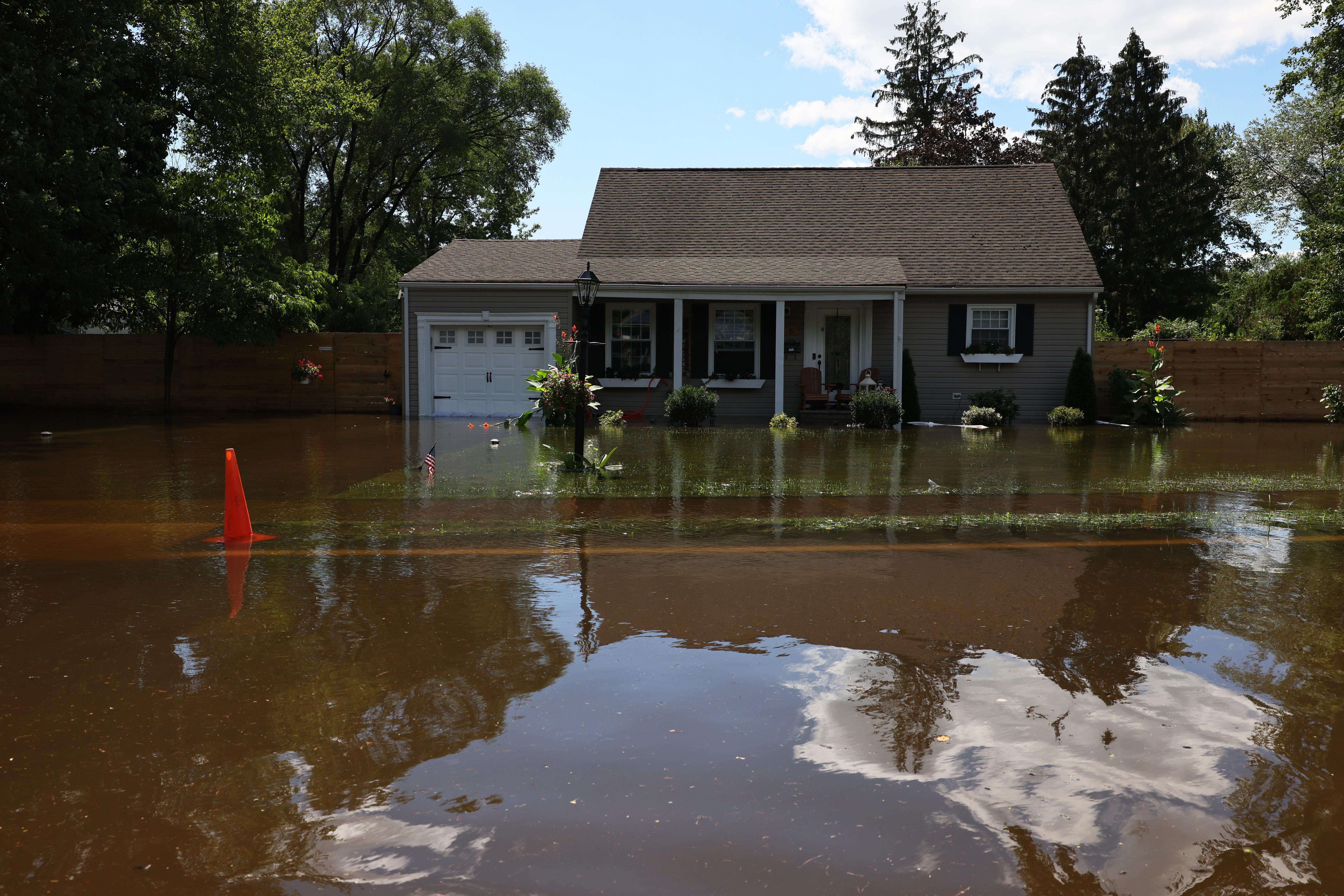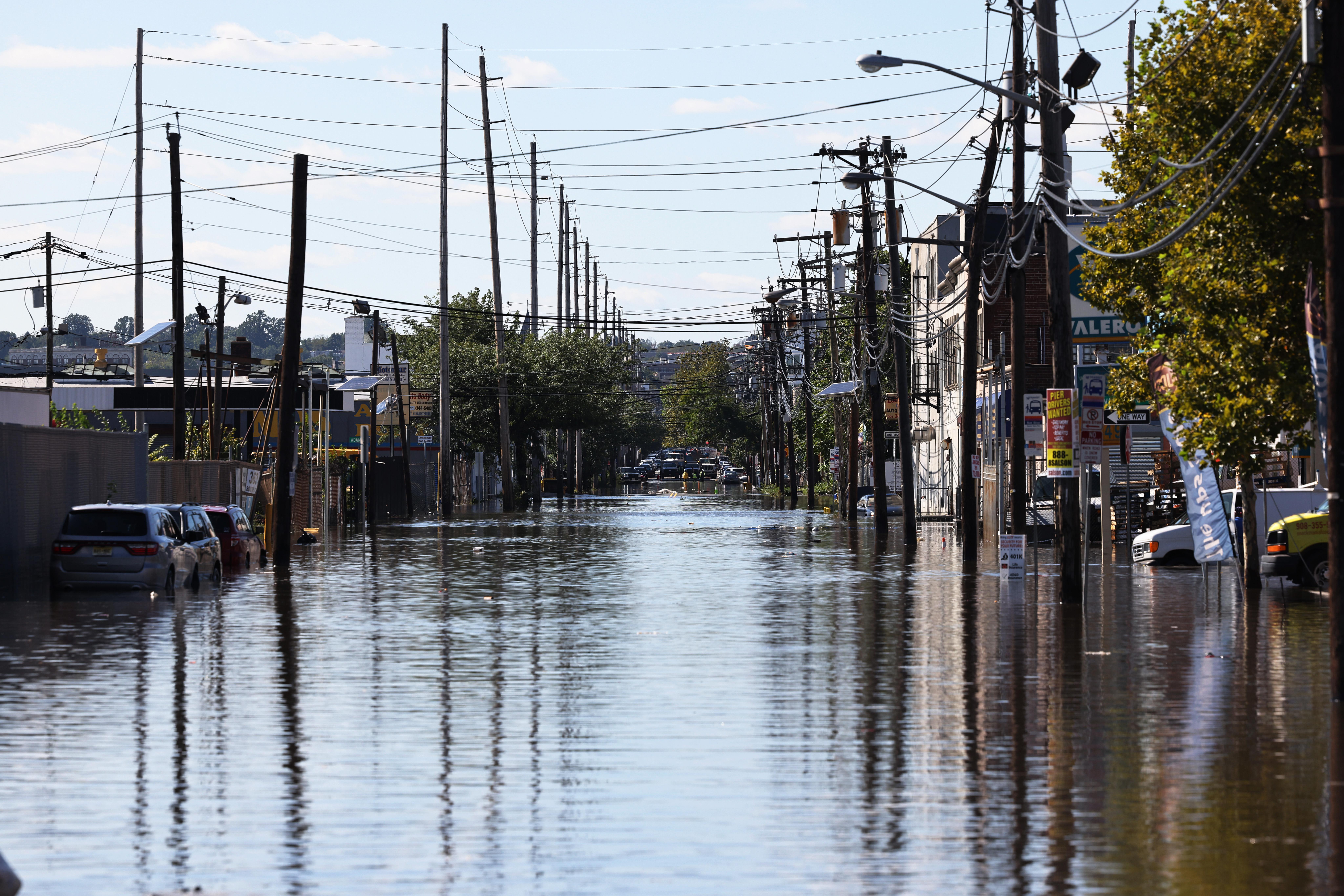Why Doesn't Homeowners Insurance Cover Floods? Here's the Real Reason
Amid Hurricane Ida, many people are wondering about what homeowners insurance covers. Here's the real reason why its doesn't cover damage from floods.
Sept. 3 2021, Published 12:00 p.m. ET
Hurricane Ida traveled up the east coast in early September and wreaked havoc in parts of the mid-Atlantic region. The Schuylkill River engulfed a town near Philadelphia as flood waters took over. At least 61 people have died from Ida's flooding. For homeowners with flood damage, insurance isn't helpful.
So, why doesn't homeowners insurance cover damage caused by floods?
How insurance companies categorize water damage
For homeowners insurance providers, flooding is only one type of water damage. There are three additional kinds—sudden or accidental discharge, sewage backup and overflow, and storm-related or hurricane.
The difference between flooding and storm-related water damage is that flooding must occur on at least two acres of normally dry land.
For insurance companies, flooding is considered "gradual."
The difference between flooding and sudden or accidental discharge is that flooding is considered gradual. Even flash floods can be considered gradual, even though they're defined as a "sudden local flood."
To insurance companies, the term "gradual" just means that the water first touches the ground outside before entering your house.
This means that most flooding is in the same category as slow plumbing leaks that cause damage over a longer period of time.
For many homeowners, this doesn't seem fair. Clearly, a flood will touch the ground before it hits your home, even if the period of time between those two events is extremely short. However, that's how homeowners insurance companies get out of flood-related claims.
When your insurance company might cover water damage
There are some technicalities that could lead your homeowners insurance provider to cover water damage. One example is if storm winds cause a tree to fall on your house and leaves your residence exposed to rainwater and causes water damage. This isn't in the same category as flooding.
However, if the flood itself causes the tree to uproot or knocks it over, the tree falling on your house isn't going to be covered. That's because the flood caused it and not strong winds from the storm. Again, insurance companies consider a flood to be a gradual event, even when the impact feels extremely sudden.
Differentiating between storm damage and flood damage
Your homeowners insurance company will find out what caused the water damage in your home—the flood itself or the storm.
If strong winds from a tropical storm or hurricane cause a window to break and your house floods, you might get coverage.
However, if the flood waters gradually build up and eventually seep into your foundation, it's considered flood damage and won't likely be covered by insurance.
Should you get flood insurance or climate change insurance?
If your homeowners insurance doesn't cover floods and you live in a flood-prone region, you might want to get additional flood or climate change insurance. At-risk regions are changing with climate change. IPCC reports that the severity and frequency of floods are increasing. For people in cities or near rivers, this could put your house at risk—even if you haven't worried about flooding in the past.
The flooding in Philadelphia was higher than any levels recorded since 1850. Overall, flood zones are expanding. When you purchase a house, be sure to check if it's in a flood zone and inspect the foundation to find out if the basement is prone to flooding. If you've already purchased a house, flood insurance might be your best bet. Insurance companies are working to assess the potential of future climate change, but it's imperative they don't underestimate its impacts.


